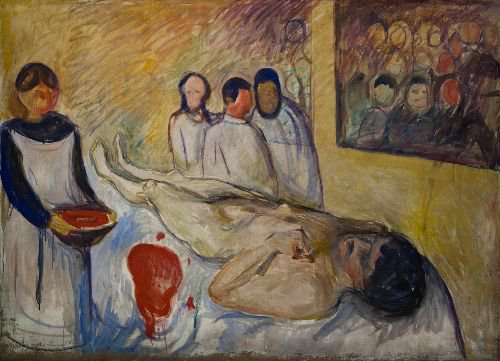Pessisimism is not often looked at as a strength, but it is a useful approach. If one is only planning for the best, then the best better happen. Recognizing the possibility of, and planning for, the worst case scenario does several things. One, it keeps you well prepared. If the worst comes to pass, then you are ready for it. But you are also ready for any alternatives, and planning for the worst challenges you to find the best and most far reaching solutions. Even if they are not used now, they can be adapted for other situations. Another way pessimism pervades is to look at the entire workload as it hangs over the looming deadline. This creates a positive stress that forces you to devise ways of prioritizing, chunking, and forcing yourself to meet targets and keep moving rather than get bogged down.
One strength that can be a great asset to a nurse is humility. A nurse definitely has to be confident and assertive, but should also know his/her limits. After going through the nursing curriculum, one learns very quickly that one person does not, and can not, know everything, and has to rely on others. We rely on classmates to explain things the text is not clear on, to give rationales for answers, and for quick advice and assistance in clinical. That last part is crucial. What nurse can say he/she was never given any assistance from anyone? Yet somehow, there are nurses in the field who refuse assistance when asked, or will say they learned on their own. Even if that were the case, then the question can be rephrased as what nurse has never wanted or needed assistance at some point. By being willing to ask for assistance, a nurse can recognize faults and deficits, show deference towards more experienced colleagues and superiors, and show a willingness to learn and adapt. Likewise, a willingness to help others when asked helps build trust and lay the groundwork for future collaboration.
Another strength that is needed for success is a willingness to learn and improve. Some practicioners get set in their ways. They cling to what they learned in training and how they learned it. While it is important to keep a firm foundation, the reality is that knowledge and technology are constantly advancing. The standard practices of today may well be obsolete not long from now. New graduates enter the field with new techniques and new medications that will go against what veteran practicioners are accustomed to. It is important to keep in mind, even after 5, 10, or 20 years, that you too were once that new graduate. Keeping an open mind can also help keep the profession fresh and stave off burnout, as each day and each encounter would be viewed as a possible learning experience and not just another day at the office.



